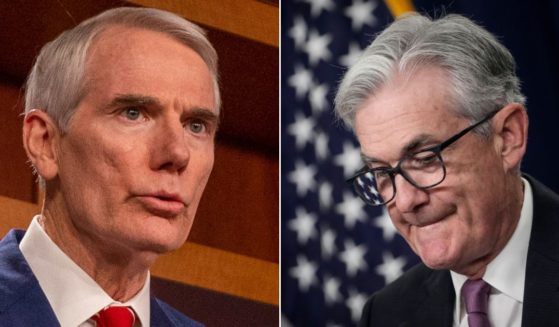
For the past nine years, the Chinese government has allegedly been trying to tamper with the Federal Reserve in an attempt to undermine American monetary policy.
In a report released on Tuesday by Republicans on the Senate Homeland Security and Government Affairs Committee, the Chinese government has apparently tried to obatin sensitive internal information and build a network of influence and informants inside the Federal Reserve, CNBC News reported.
The report from the committee outlined that several Federal Reserve employees known as the “P-Network” raised concerns with their foreign travel patterns and educational backgrounds.
For example, one of these employees was detained four times during a 2019 trip to Shanghai and Chinese officials “threatened the individual’s family unless the individual provided them with economic information and assistance,” Fox News reported.
There are reports of other Federal Reserve employees who had “close ties” to the People’s Bank of China, Chinese academic institutions and Xinhua News agency, which is a state-run.
Another employee had “continuous contacts with Chinese nationals” and also attempted “to transfer large volumes of data from the Federal Reserve to an external site.”
Yet another Fed employee allegedly transferred “modeling code” to a Chinese University tied to China’s central bank.
However, despite these findings and suspicions, the report from the committee staff of Ohio Sen. Rob Portman (who was the ranking member on the committee authoring the report) did not actually conclude whether the attempts of the Chinese government were successful.
Federal Reserve Chairman Jerome Powell disputed the findings of the report.
“We would be concerned with any supportable allegation of wrongdoing, whatever the source,” Powell wrote in the letter, Fox reported. “In contrast, we are deeply troubled by what we believe to be the report’s unfair, unsubstantiated and unverified insinuations about particular individual staff members.”
Powell may dispute the facts and claims of Chinese meddling in the Fed, but it seems to be no secret in the intelligence and law enforcement communities that China has been messing with U.S. institutions at an alarming rate.
“The Chinese government is set on stealing your technology – whatever it is that makes your industry tick – and using it to undercut your business, and dominate your market,” FBI Director Christopher Wray said in June, Fox reported. “And they’re set on using every tool at their disposal to do it.”
When it comes to competing and undermining the U.S., economics has always been China’s preferred weapon of choice anyway, so whether it’s verifiable or not, it really should come as no surprise if they did have informants, or just people they were pressuring, inside the Fed.
In light of the report, Portman has urged the Fed to “do more” to protect itself.
“I am concerned by the threat to the Fed and hope our investigation, which is based on the Fed’s own documents and corresponds with assessments and recommendations made by the FBI, wakes the Fed up to the broad threat from China to our monetary policy,” Portman said in a statement, KABC News reported. “The risk is clear, I urge the Fed to do more, working with the FBI, to counter this threat from one of our foremost foreign adversaries.”
It’s possible that Portman and the other members of the Senate Homeland Security and Government Affairs Committee may be dead wrong about these individual Fed employees and the suspicions around them.
But even if this was just Portman crying “wolf,” he has a valid point in urging the Federal Reserve to be wary and work to counteract any foreign threats.
Economic warfare and dominance are the styles of the modern age, so the Fed cannot be so naive as to think it is safe from foreign meddling.
The Fed has a say in boosting and directing the most powerful economy in the world. Powell should not for one minute think that it hasn’t passed through the Chinese government’s mind that the Fed would be a fabulous target to weaken the U.S. economy and nation overall.
Via Newsmax
